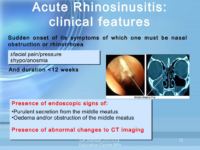Hey there! If you’ve ever experienced the torment of a bacterial sinus infection, then you know just how miserable it can be. The constant pressure, the never-ending congestion, and the pounding headache – it’s enough to drive even the most patient person up the wall! But fear not, my friend, because today we’re diving headfirst into the world of preventing those pesky bacterial sinus infections. Whether you’re a chronic sufferer or just looking for some tips to keep your sinuses in tip-top shape, this blog post has got you covered. So grab a cup of tea, sit back, and get ready to learn some easy and practical ways to keep those pesky bacteria at bay. Let’s kick those infections to the curb!
What is a Bacterial Sinus Infection?
A bacterial sinus infection is a contagious infection of the sinuses that occurs when harmful bacteria enter the body. This type of infection can be highly transmissible from person to person, making it important to take precautions. Bacterial sinus infections are typically caused by bacteria such as Streptococcus pneumoniae or Haemophilus influenzae, which can easily spread through respiratory droplets. When an infected person coughs or sneezes, these bacteria can become airborne and be inhaled by others, leading to the spread of the infection. Therefore, it is crucial to practice good hygiene, such as frequent handwashing and covering the mouth and nose when coughing or sneezing, to minimize the risk of transmitting the bacteria. Additionally, avoiding close contact with individuals who have a bacterial sinus infection can also help prevent its contagious nature. By being mindful of these precautions, we can reduce the spread of bacterial sinus infections and protect ourselves and those around us from this contagious condition.
Bacterial sinus infections are a common ailment that can be both uncomfortable and frustrating to deal with. These infections are caused by certain bacteria which have the ability to trigger inflammation and irritation within the sinus cavity. As a result, the passages in the sinuses become blocked, leading to symptoms such as congestion, headaches, and a general feeling of discomfort. One of the concerns often associated with bacterial sinus infections is whether they are contagious or not. While bacterial sinus infections themselves are not typically contagious, the bacteria that cause them may be spread from person to person through close contact or exposure to contaminated surfaces. Therefore, it is important to maintain good hygiene practices, such as regularly washing hands and avoiding sharing personal items, in order to minimize the risk of spreading these bacteria to others. By understanding how bacterial sinus infections occur and taking necessary precautions, we can help prevent the transmission of these infections and ultimately safeguard our own health and the well-being of those around us.
Bacterial sinus infections are undeniably contagious, posing a risk of transmission through close contact with infected individuals or contact with contaminated surfaces. These infections involve the presence of harmful bacteria in the sinuses, which can easily be transmitted from person to person. The contagious nature of bacterial sinus infections should not be underestimated, as it highlights the importance of maintaining proper hygiene and taking necessary precautions to prevent the spreading of these infections. By understanding the potential for contagion associated with bacterial sinus infections, individuals can make informed choices to protect themselves and others from the risks they pose.
Next, when dealing with a potential bacterial sinus infection, it is crucial to understand the contagious nature of this condition. It is vital to seek medical attention promptly if there is suspicion of a bacterial sinus infection, as early diagnosis and treatment can play a vital role in limiting its spread. By doing so, individuals can not only protect themselves but also prevent the transmission of this infection to others. Neglecting to address a bacterial sinus infection in a timely manner increases the risk of more serious complications, such as the infection spreading to other parts of the body or the development of chronic sinusitis. Remember, in order to safeguard both personal health and the health of those around us, it is paramount to recognize the contagious nature of bacterial sinus infections and take appropriate measures to seek medical care promptly.
Identifying Symptoms of a Bacterial Sinus Infection
A bacterial sinus infection, also known as sinusitis, can be accompanied by various signs and symptoms. These can include facial pain or pressure, a persistent headache, a green or yellow nasal discharge, nasal congestion, fever, bad breath, and fatigue. While these indications may cause concern, it’s important to understand that bacterial sinus infections are not usually contagious. They are typically caused by bacteria that exist naturally in our sinuses, becoming overgrown and causing an infection. This means that you cannot contract a bacterial sinus infection from someone else, as it is not easily transmitted from person to person. However, it is worth noting that the underlying condition that led to the infection, such as a viral cold or allergies, may be contagious. Therefore, it is crucial to practice good hygiene and preventive measures to minimize the risk of developing a bacterial sinus infection or spreading any contagious conditions.
It is important to note that a bacterial sinus infection is not contagious, but it does come with several uncomfortable symptoms. Additionally, people who have severe sinus infections might experience pain in the upper teeth and jaw area, a reduction in the sense of smell and taste, and swelling around the eyes. These symptoms can be quite bothersome and may make it difficult for individuals to carry out their daily activities. However, it is crucial to understand that these symptoms are not indicative of the infection being contagious.
Understanding the contagious nature of a bacterial sinus infection is essential when dealing with this condition. It is crucial to be aware that a bacterial sinus infection is indeed contagious, which means it can easily spread from person to person. This transmission can occur through direct contact with an infected individual or indirectly through contact with surfaces carrying the bacteria, such as doorknob or desks. Therefore, taking precautionary measures to prevent the spread of a bacterial sinus infection is of utmost importance. By practicing good hygiene, such as regularly washing hands and disinfecting commonly touched surfaces, individuals can effectively minimize the risk of contracting or transmitting this contagious condition.
Additionally, practicing good hygiene, such as regularly washing hands, avoiding physical contact with an infected person, and regularly cleaning commonly used surfaces, is crucial to prevent the spread of bacterial sinus infection. By following these simple yet effective measures, individuals can reduce the risk of contracting and spreading this contagious ailment. Understanding the contagious nature of bacterial sinus infection serves as a reminder of the importance of personal responsibility and consideration for others. By taking these precautions, we not only protect ourselves but also contribute to the well-being of our communities, ensuring a healthier environment for everyone.
Understanding How a Bacterial Sinus Infection is Contracted and Spread
A bacterial sinus infection, commonly referred to as acute bacterial rhinosinusitis, is indeed contagious. This type of infection is caused by a bacterial invasion and can easily spread through direct contact with an infected person. The contagious nature of a bacterial sinus infection implies that individuals who come into close contact with someone suffering from this condition are at risk of contracting the infection themselves. It is crucial to be cautious and take necessary preventive measures to avoid the spread of this contagious ailment.
A bacterial sinus infection is a highly contagious condition, posing a risk of transmission through various means of contact. This infectious ailment can be easily passed on by direct contact with the infected individual’s saliva or mucus, which may contain harmful bacteria. Additionally, airborne droplets, released when the infected person coughs or sneezes, harbor the bacteria and can be inhaled by others nearby, heightening the risk of contracting the infection. The contagious nature of a bacterial sinus infection emphasizes the importance of taking necessary precautions to prevent its spread.
Meanwhile, understanding the dynamics of how a bacterial sinus infection is contracted and spread plays a crucial role in safeguarding ourselves and others from its contagious nature. By being aware of the modes of transmission, such as direct contact, respiratory droplets, or contaminated surfaces, we can implement preventive measures effectively. This can include maintaining good personal hygiene, avoiding close contact with infected individuals, and practicing proper cough and sneeze etiquette. Additionally, regular disinfection of commonly-touched surfaces and objects can help reduce the risk of transmission. By taking these proactive steps, we not only lower the chances of catching a bacterial sinus infection but also prevent its spread to others. Ultimately, increasing knowledge about the contagion factors surrounding bacterial sinus infections empowers us to actively protect ourselves and our communities from this potential health threat.
Practicing Good Hygiene to Reduce the Risk of Spreading a Bacterial Sinus Infection
Practicing good hygiene is crucial when it comes to preventing the spread of a bacterial sinus infection, as this condition can indeed be contagious. To minimize the risk of transmission, it is important to adhere to certain habits. Firstly, washing your hands frequently with soap and water is a simple yet effective way to eliminate bacteria that may be present on your hands. By doing so, you reduce the chances of infecting yourself or others with the contagious agents associated with a bacterial sinus infection. Additionally, it is advisable to avoid touching your face, particularly your nose and mouth, as this can introduce bacteria into your respiratory system. Lastly, when sneezing, covering your mouth and nose with a tissue or your elbow can prevent respiratory droplets containing infectious particles from being released into the air and potentially infecting those around you. By incorporating these hygienic practices into your daily routine, you can significantly reduce the likelihood of spreading a bacterial sinus infection to others.
When it comes to the topic of bacterial sinus infections being contagious, it is crucial to be aware of certain precautions to prevent their spread. One such precaution is avoiding the sharing of drinks, utensils, towels, and other personal items that may potentially harbor bacteria. By refraining from such practices, individuals can significantly reduce the risk of transferring the infection to others. Bacterial sinus infections are known to be contagious, meaning they can be transmitted from one person to another through direct contact or exposure to respiratory secretions. Hence, adopting a hygienic approach and avoiding the sharing of personal items is paramount in safeguarding oneself and others from the potential spread of the infection.
Thus, maintaining good hygiene practices and regularly disinfecting surfaces that may have been exposed to an infected individual or their bodily fluids is crucial in preventing the transmission of bacteria and other infectious agents linked to bacterial sinus infections. By implementing these preventive measures, we can significantly reduce the risk of contagion and protect ourselves as well as those around us. Furthermore, ensuring that proper handwashing techniques are followed and promoting awareness of the importance of personal hygiene can further contribute to breaking the chain of transmission. Ultimately, by taking proactive steps and prioritizing cleanliness, we can effectively mitigate the spread of bacterial sinus infections and create a healthier environment for everyone.
Vaccinations for Prevention of Bacterial Sinus Infections
Vaccinations play a crucial role in safeguarding individuals against bacterial sinus infections, renowned for being contagious. These immunizations effectively strengthen the body’s defense mechanisms, providing a vital shield against the bacteria responsible for causing these infections. By stimulating the immune system, vaccinations help to build immunity and enhance the body’s ability to fight off the contagious bacteria associated with bacterial sinus infections. This preventative measure significantly reduces the risk of contracting and transmitting bacterial sinus infections, ultimately contributing to a healthier and safer community.
Bacterial sinus infections, also known as sinusitis, can pose a contagious threat to individuals. However, there are various vaccines available that act as a protective shield against different bacterial forms commonly associated with sinus infections. Streptococcus pneumoniae, Haemophilus influenzae, and Moraxella catarrhalis are some of the bacterial strains that can lead to sinusitis. These vaccines provide a defense mechanism by stimulating the immune system to produce antibodies specific to these bacteria, reducing the risk of infection and transmission to others. Regular immunization not only safeguards individuals from bacterial sinus infections but also helps in preventing the spread of contagious bacteria to vulnerable populations. So, ensuring up-to-date vaccinations is crucial in maintaining personal health and minimizing the contagious threat posed by bacterial sinus infections.
Also, by reducing the risk of developing a bacterial sinus infection through regular vaccinations, individuals can also help prevent the spread of this contagious infection to others. Bacterial sinus infections can be easily transmitted from person to person through close contact, such as coughing or sneezing. By taking proactive measures to protect oneself against this contagious infection, not only can individuals reduce their own risk of becoming sick, but they can also contribute to the overall health and well-being of their community. Regular vaccinations not only ensure personal protection but also help in creating a safer and healthier environment for everyone. Therefore, it is essential to prioritize the importance of vaccinations in order to prevent the transmission of bacterial sinus infections and reduce the rate of contagion within our communities.
Recognizing the Risk Factors for Developing a Bacterial Sinus Infection
Understanding the risk factors for developing a bacterial sinus infection is crucial when it comes to preventing its contagious spread to others. Awareness of any underlying illnesses that may increase susceptibility to this infection, such as asthma or a compromised immune system, is of utmost importance. By recognizing these risk factors, individuals can take necessary precautions to avoid transmitting the bacterial sinus infection to those around them. This awareness empowers individuals to prioritize their health and take proactive steps towards preventing the contagious spread of bacterial sinus infections.
When discussing the topic of bacterial sinus infection, it is crucial to consider its contagious nature. While bacterial sinus infections are not typically contagious, it is still essential to be aware of certain symptoms that may arise. These symptoms include facial pain and pressure, a thick yellow or green nasal discharge, and fatigue. Recognizing these signs can help individuals seek proper medical attention if necessary. Although bacterial sinus infections are not commonly spread person-to-person, understanding their symptoms can aid in preventing any potential transmission. Therefore, it is important to stay informed about the characteristics and contagion aspects of bacterial sinus infections.
Furthermore, practicing good hygiene habits is not only crucial for reducing the chances of developing a bacterial sinus infection, but also for preventing its spread to others. By maintaining frequent hand washing and avoiding close contact with individuals who are already infected, we can greatly decrease the risk of contagion. It is essential to understand that bacterial sinus infections are indeed contagious, and therefore, taking these preventive measures becomes even more imperative. By adhering to these simple yet effective practices, we can safeguard our own well-being as well as the health of those around u
Treating and Managing Symptoms of Bacterial Sinus Infections
When it comes to the topic of bacterial sinus infections being contagious, it is essential to first acknowledge that treating the symptoms begins with understanding the underlying cause. In many cases, these infections can be triggered by various factors such as allergies, colds, or exposure to irritants like dust or smoke. Identifying the root cause is crucial in determining how contagious the infection may be. Although bacterial sinus infections themselves are not typically contagious, the initial triggers like common colds or allergies can indeed spread from person to person. Therefore, it is important to take necessary precautions and practice good hygiene to prevent the transmission of these initial causes. By maintaining cleanliness and avoiding close contact with individuals who have active cold symptoms, we can reduce the likelihood of spreading the factors that could potentially lead to bacterial sinus infections.
A bacterial sinus infection is not typically contagious, as it is caused by bacteria rather than a virus. However, it is important to identify the underlying cause to effectively treat the infection. Once the cause is identified, medications such as antibiotics may be prescribed to help treat the infection. These antibiotics specifically target the bacteria responsible for the infection, reducing the symptoms and promoting healing. Additionally, over-the-counter pain relievers can also be taken to help reduce inflammation and pain in the affected area. While bacterial sinus infections are not contagious, it is essential to take proper care and hygiene to prevent the spread of any potential respiratory infections.
However, it is important to note that bacterial sinus infections are not contagious. While the symptoms may be similar to those of a cold or flu, the infection itself is caused by bacteria and not by a virus. This means that it cannot be spread from person to person through casual contact. Medications play a crucial role in treating bacterial sinus infections, but incorporating lifestyle modifications into the treatment plan can further enhance the effectiveness. By avoiding exposure to irritants and taking enough rest, individuals with bacterial sinus infections can effectively manage their symptoms and reduce the likelihood of recurrence. It is vital to debunk the misconception that these infections are contagious, as this can help alleviate unnecessary alarm and promote a better understanding of the condition.
Seeking Medical Advice if Symptoms Persist or Worsen
If you’re experiencing symptoms commonly associated with a bacterial sinus infection, such as facial pain or pressure, nasal congestion, post-nasal drip, and the presence of thick greenish mucus, it is crucial to seek medical advice if these symptoms persist or worsen. While it is essential to address these symptoms promptly, it is also important to understand the nature of bacterial sinus infections in terms of contagion. Bacterial sinus infections are generally not contagious, meaning they do not spread from person to person like a common cold or flu. These infections are caused by bacteria that are already present in the sinuses, leading to an inflammation of the sinus lining. While the infection itself is not contagious, the bacteria responsible for the infection can be passed on to others through close contact. Therefore, maintaining good hygiene practices, such as frequent handwashing and avoiding sharing personal items, can help minimize the risk of spreading bacteria to others. By seeking medical advice and taking appropriate measures to manage your symptoms, you can reduce the risk of complications and protect those around you from potential contagion.
A bacterial sinus infection, if left untreated, has the potential to escalate into a more severe condition and can even spread to other parts of the body, including the ears and brain. This emphasizes the importance of timely and effective treatment to prevent further complications. Though the contagious nature of bacterial sinus infections is a separate topic, understanding the potential consequences of allowing such an infection to progress untreated underscores the urgency in seeking medical attention. By seeking prompt treatment, individuals can minimize the risk of the infection spreading to other areas of the body, and ensure a quicker recovery.
When dealing with a potential bacterial sinus infection, it is essential to consult with a healthcare provider who can accurately diagnose the nature of the infection, whether it is bacterial or viral. This distinction is crucial as bacterial sinus infections are typically contagious whereas viral infections are not. By seeking professional medical advice, you can receive the most appropriate course of treatment tailored to your specific condition. This will not only help in alleviating symptoms but also prevent the spread of a bacterial sinus infection to others. Thus, it is highly recommended to consult with a healthcare provider to ensure a prompt and effective resolution of your bacterial sinus infection while minimizing any risk of contagion.
Again, it is important to remember that bacterial sinus infections are not contagious. While the symptoms may be bothersome and uncomfortable, transmitting the infection to others is highly unlikely. Nonetheless, seeking medical attention is crucial to properly diagnose and treat the infection. Medications may be prescribed to fight the infection and further relieve symptoms, so don’t hesitate to speak with a professional if you believe a bacterial sinus infection is present. By taking the necessary steps to seek treatment, individuals can alleviate their symptoms and prevent the spread of misinformation about bacterial sinus infections being contagious.
Living with Chronic Bacterial Sinus Infections
Living with chronic bacterial sinus infections can be an extremely challenging and uncomfortable experience. Not only do individuals have to endure the constant discomfort and pain associated with this condition, but they also face the daunting task of seeking ongoing medical treatment. The persistent nature of bacterial sinus infections demands regular visits to healthcare professionals, multiple rounds of antibiotics, and various other therapies to alleviate symptoms and prevent further complications. However, one aspect that often concerns individuals dealing with these infections is whether they are contagious or not. While bacterial sinus infections can be caused by contagious factors such as viruses or bacteria, the infections themselves are not contagious. This means that individuals suffering from bacterial sinus infections cannot directly spread their condition to others. Nonetheless, certain precautions should still be taken to prevent the transmission of the bacteria or viruses that can cause these infections. By practicing good hygiene, such as washing hands frequently, covering cough and sneezes, and avoiding close contact with infected individuals, the risk of spreading contagious agents and developing subsequent sinus infections can be significantly reduced.
Bacterial sinus infections, although not contagious in the conventional sense, can still be transmitted through close contact with others. It is important to understand that while the infection itself cannot directly spread from person to person, certain factors can contribute to its transmission. Close contact between individuals can facilitate the exchange of bacteria responsible for causing sinus infections, making it more likely for someone to develop the infection after being exposed to these bacteria. Therefore, although bacterial sinus infections are not considered highly contagious, it is still essential to take precautionary measures and maintain good hygiene to minimize the risk of transmission.
When it comes to the highly contagious nature of bacterial sinus infections, practicing good hygiene habits is absolutely crucial. By incorporating simple yet effective measures such as frequent hand-washing and refraining from sharing items that may have been in contact with an infected individual’s nose or mouth, the risk of passing on this infection can be significantly reduced. These include avoiding the sharing of eating utensils, tissues, and other personal items. By prioritizing these important steps, individuals can protect themselves and others from contracting and spreading bacterial sinus infections.
However, it is crucial to remember that not all bacterial sinus infections are contagious. If you do have a chronic bacterial sinus infection, it is essential to consult with your doctor for the best course of treatment to manage your symptoms. They will be able to provide you with the necessary guidance on preventing the spread of the infection to those around you. By taking proper precautions and following your doctor’s advice, you can minimize the risk of transmission and ensure the well-being of both yourself and others. Remember, knowledge and proactive measures are key in managing a bacterial sinus infection and preventing it from becoming contagious.
Read also: Maxillary sinus pain without congestion
In conclusion, preventing the spread of bacterial sinus infections is a crucial step towards maintaining optimal sinus health. By following these simple and practical tips, you can minimize the misery caused by constant pressure, congestion, and headaches. Whether you are a chronic sufferer or simply seeking preventive measures, implementing these strategies will help keep those pesky bacteria at bay. So, indulge in a cup of tea, relax, and take charge of your sinus health. Let’s reclaim our well-being and kick those infections to the curb!






